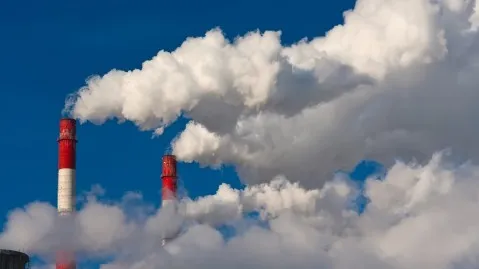
Urgent action needed for a ‘resilient’ energy transition: WEF
Countries should diversify their energy mix and make binding climate commitments.
There is a need for urgent action from both the private and public sectors to ensure a “resilient” transition amidst the most severe energy crisis since the 1970s, according to the World Economic Forum (WEF).
In its Fostering Effective Energy Transition 2022 report, WEF said the need to accelerate the energy transition is pushed by high fuel prices, commodities shortages, insufficient headway on achieving climate goals, and slow progress on energy justice and access.
“Countries are at risk of future events compounding the disruption of their energy supply chain at a time when the window to prevent the worst consequences of climate change is closing fast,” said Roberto Bocca, Head of Energy, Materials and Infrastructure, World Economic Forum.
“While there are difficult decisions to be taken to align the imperatives of energy security, sustainability and affordability in the short term, now is the time to double down on action,” he added.
To address energy market volatility, it is important to prioritize not only the energy transition but also the diversification of the energy mix. Countries should also make binding climate commitments and craft a long-term vision for domestic and regional energy systems. They should also attract private investors for decarbonisation projects and help consumers and the workforce adjust.
The WEF also said that there are structural barriers to balancing energy affordability, security and availability with sustainability due to “post-pandemic surge in energy demand, fuel supply bottlenecks, inflationary pressures and reconfigured energy supply chains as a result of the war in Ukraine.”
Countries should pursue diversification in the energy mix and also in considering their fuels and energy suppliers in the shorter term, noting that most countries are reliant on a handful of trade partners, “providing limited flexibility to deal with disruptions.”
Of the 34 countries with advanced economies, 11 rely only on three trade partners for over 70% of their fuel imports, according to the report.
The WEF also said that countries should protect their consumers and ensure that they have affordable access to energy.








![Cross Domain [Manu + SBR + ABF + ABR + FMCG + HBR + ]](https://cmg-qa.s3.ap-southeast-1.amazonaws.com/s3fs-public/styles/exclusive_featured_article/public/2025-01/earth-3537401_1920_4.jpg.webp?itok=WaRpTJwE)
![Cross Domain [SBR + ABR]](https://cmg-qa.s3.ap-southeast-1.amazonaws.com/s3fs-public/styles/exclusive_featured_article/public/2025-01/pexels-jahoo-867092-2_1.jpg.webp?itok=o7MUL1oO)









 Advertise
Advertise


